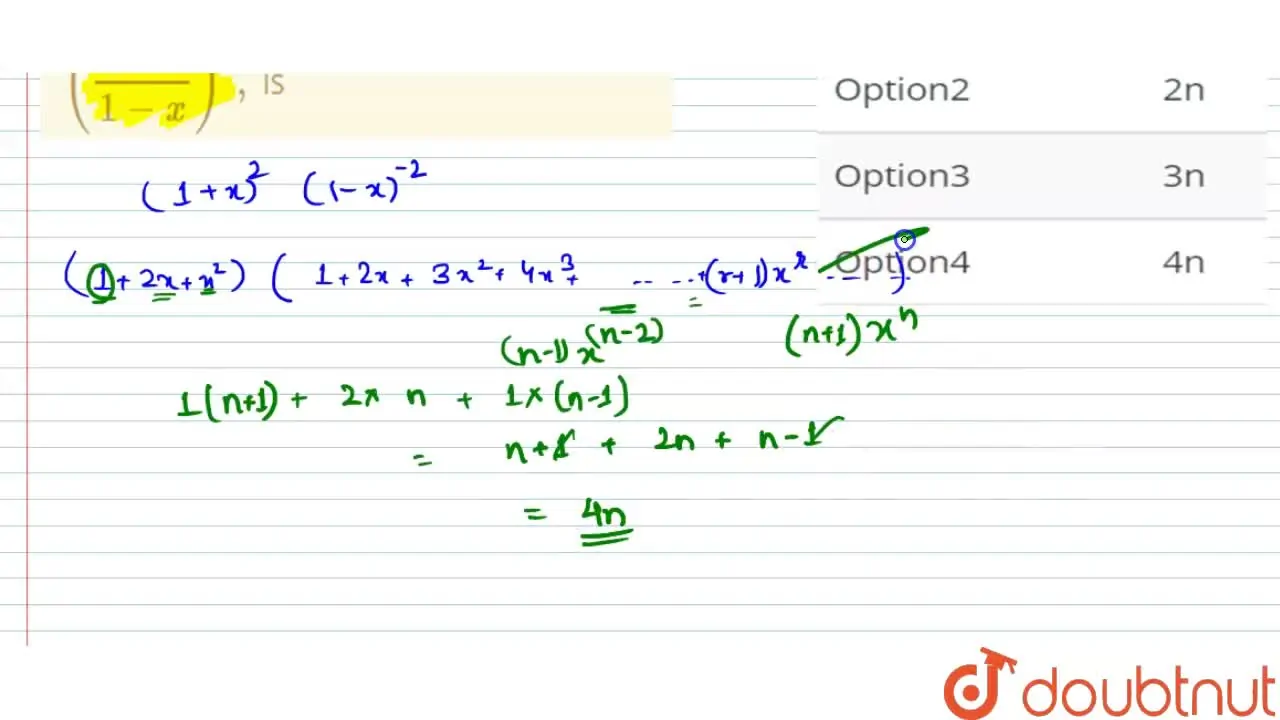The coefficient of xnin the expansion of
(1+x1−x)2, is
A
n
B
2n
C
3n
D
4n
Video Solution
Text Solution
The correct Answer is:D
We have,
(1+x1−x)2=(1+x)2(1−x)−2
=(1+2x+x2){1+2x+3x2+4x3+…+(n−1)xn−2+nxn−1+(n+1)xn+…}
∴ Coefficients of xn in(1−x1−x)2
=1×(n+1)+2×(n)+1×(n−1)+2n+n−1=4n
|
Updated on:21/07/2023
Related Playlists
- BOOK - OBJECTIVE RD SHARMACHAPTER - BINOMIAL THEOREM AND ITS APPLCIATIONS EXERCISE - Section I - Solved Mcqs100videos
BINOMIAL THEOREM AND ITS APPLCIATIONS
- BOOK - OBJECTIVE RD SHARMACHAPTER - BINOMIAL THEOREM AND ITS APPLCIATIONS EXERCISE - Section I - Assertion Reason Type13videos
BINOMIAL THEOREM AND ITS APPLCIATIONS
- BOOK - OBJECTIVE RD SHARMACHAPTER - CARTESIAN CO-ORDINATE SYSTEM EXERCISE - Exercise29videos
CARTESIAN CO-ORDINATE SYSTEM
Similar Questions
Coefficient of xn in the expansion of (1+x)n1−x
View SolutionThe coefficient of xn in the expansion of (1+x)(1−x)n is
View SolutionThe coefficient of xn in the expansion of (1+x)(1−x)n is
View SolutionThe coefficient of xn in the expansion of (1+x)2(1−x)3, is
View SolutionThe coefficient of xn in the expansion of loga(1+x) is
View SolutionThe coefficient of xn in the expansion of 1(1−x)(3−x), is
View SolutionThe coefficient of x4 in the expansion of (1−x)−2 is
View SolutionThe coefficient of xr in the expansion of (1−x)−2 is
View SolutionFind the coefficient of xn in the expansion of (1+x)(1−x)n.
View SolutionIf n is a positive integer, then the coefficient of xn in the expansion of (1+2x)n1−x is
View Solution


